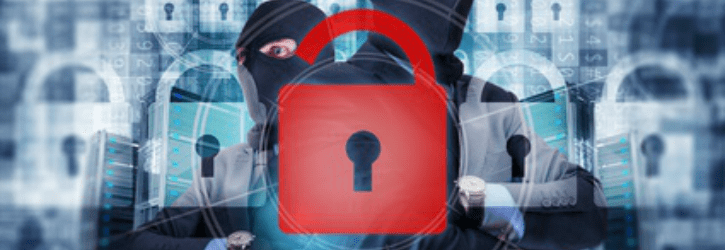
Welcome To The Data Leak Lawyers Blog
We focus on the latest news surrounding data breaches, leaks and hacks plus daily internet security articles.

We focus on the latest news surrounding data breaches, leaks and hacks plus daily internet security articles.

We have been contacted by victims of the LOQBOX data breach since Saturday, and we immediately offered No Win, No Fee agreements for the several victims that got in touch.
LOQBOX has been hacked and customers are being informed about the potential exposure of personal information. As accessible lawyers, we were open over the weekend from 9am to 5pm to help victims who were receiving breach notification emails, and we have taken compensation claims forward.
If you’ve been informed that you were a victim of the LOQBOX hack, we could represent you for a claim for compensation. As a leading firm of specialist data breach lawyers that are proudly representing people in over 30 different group and multi-party actions, with thousands of people coming to us for our expertise, we can help you.

You can be entitled to claim compensation for a security breach, and we can offer No Win, No Fee representation for victims who put their trust in us.
As a leading firm that specialises in data breach compensation law, thousands of people have been coming to us for our expert help for years. We launched our first group legal case back in 2015 when data compensation was an emerging area of law, and many of the dozens of actions that we now help people for involve security breaches. In fact, the first GDPR Group Litigation Order (GLO) that we’re on the Steering Committee for – the BA Group Action – stemmed from a security breach.
Victims can contact our team for free, no-obligation advice about their options for compensation.

If your medical records are exposed, you could be entitled to make a claim for data breach compensation with us on a No Win, No Fee basis.
We represent a lot of people for cases of this nature, and the impact on the victim is usually severe. Data breach compensation amounts are designed to reflect the severity of the distress caused by the loss of control of personal information. When the data misused or exposed is particularly sensitive and confidential, like medical data, the distress can be worse. As such, pay-outs can be significant.
Victims should never suffer in silence. If you have been the victim of a medical records data breach, you could be entitled to compensation, and we can help.

No one should underestimate the impact of data breaches; not the organisations who cause a data breach, nor the victims who are caught up in one.
Information is knowledge, and knowledge is power. In the wrong hands, even a little data can go along way to harming someone. The number of breaches and hacks in recent years has grown at a rapid rate, and we expect to see this trend continue; even though we have the GDPR in place nowadays.
Take it from us a leading firm of data breach compensation experts: we know the impact incidents can cause to the victims. Here’s some advice about the risks and what you can do about being the victim of a data breach event.

News of the massive MGM data breach is yet another example of hackers successfully hitting the travel and tourism industry, and the fallout of this one is monumental.
First reported by ZDNet, it’s understood that the attack took place last summer, and that some of the former guests affected by the cyberattack have been notified. It’s understood that at least 10.6 million guests have been affected by the attack, although MGM has also admitted that there could be more.
This breach follows a string of infamous attacks involving the tourism industry in the last few years. The first GDPR Group Litigation Order (GLO) in England and Wales is for the 2018 British Airways data breaches, and both Marriott and Cathay Pacific have also been hit with attacks in recent years.

We represent a lot of victims for cyber theft compensation claims. This includes individual claims and the many people involved in our group and multi-party actions.
We can represent victims for compensation cases on a No Win, No Fee basis if they’re eligible to claim with us. We understand that the impact of having your information exposed and / or stolen can be devastating, and organisations are still not doing enough to protect the valuable data that they store and process.
As a leading firm of data breach compensation experts that have been fighting for the rights of victims for a lot longer than many other firms, we can help you.

We represent victims for Department for Work and Pensions data breaches, and we know that the impact in terms of the distress suffered can be severe.
Public sector data breaches are one of the most common types of legal cases that we take forward for people on a No Win, No Fee basis. Given the ongoing resource restraints that many areas of the public sector are under, it’s not uncommon to see incidents that involve organisations like the DWP. Victims do not have to suffer in silence, and they have the right to make a claim for compensation with us.
As a leading firm of data breach compensation experts that have been helping thousands of people for years in this complex and niche area of law, we can help you.

Online fraud compensation claims are growing as criminals are making use of e-skimming hacks to steal payment card information in real-time.
When you withdraw money from an ATM or make a card purchase in a shop, you can shield the keypad when you enter your pin and keep an eye over your shoulder for anything suspicious. You may also be able to tell if there’s something dodgy on the ATM or card reader that could indicate it’s not secure.
But when you’re shopping online or in an app, you can’t really take those kinds of precautions. People are at increasing risks of e-skimming which involves card information being stolen in real-time online, so here’s our advice for what victims can do.

We represent several clients who are claiming for employment tribunal data breaches, and there are many ways these kinds of incidents can take place.
Employment tribunals are sensitive matters that need to be treated confidentially. Many people involved in disputes with an employer do not want colleagues or former colleagues knowing the details about what’s going on. Although some colleagues may need to be aware for witness evidence purposes, it’s not usually a matter that should be so widely known.
Over the last 5 years, we’ve been at the forefront of data breach compensation claiming as a leading firm of expert lawyers. A number of the individual legal cases we deal with have involved leaks and breaches associated with employment tribunal matters. Here’s how we can help you.

A foster care data breach is one of the most sensitive and significant types of cases that we represent clients for on a No Win, No Fee basis.
A lot of claims we take forward involve social services matters, and it’s the adoption agency and fostering matters that can often be the worst. Many victims are vulnerable children, and the families associated can suffer when a breach takes place as well.
As a leading firm of data breach compensation experts that has been specialising in this niche and complex area of law for a lot longer than most other firms, we can help you the right way.
EasyJet admits data of nine million hacked
British Airways data breach: How to claim up to £6,000 compensation
Are you owed £5,000 for the Virgin Media data breach?
Virgin Media faces £4.5 BILLION in compensation payouts
BA customers given final deadline to claim compensation for data breach
Shoppers slam Morrisons after loyalty points stolen
Half a million customers can sue BA over huge data breach
Lawyers accuse BA of 'swerving responsibility' for data breach
The biggest data breaches of 2020
Fill out our quick call back form below and we'll contact you when you're ready to talk to us.